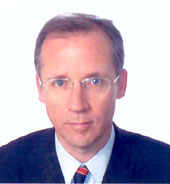Australians popular for settling domain disputes

The center was established in 1994 and and administers IP treaties. WIPO's budget of CHF 531 M is largely self funded.
Domain names became valuable property and resulted in difficult legal disputes. The issues were between parties in different legal jurisdictions and involved issues new to the courts. In December 1999 brought in a simple dispute procedure for domain name disputes involving “cybersquatting”. The work is largely online, with no face to face hearings so far.
The complainant files and complaint with the provider. The provider notifies the respondent who has 20 days to reply. A panel is appointed and the decision is implemented within ten days if there is no court case. This makes for a lightweight process but still allowing courts to be used.
One aspect that surprised me was that companies use this process to stop those with “phishing” and other fake web sites. I assumed they would refer such matters to the police as these are crimes, but the arbitration process might be a lot more certain and faster.
There were 1924 cases in 2007 and the number is increasing (having dropped after the dot.com bubble). 1.76% were Australian, this percentage is increasing and is ninth place internationally. .Com registrations dominate the disputes, the next highest is France, UK, Germany, Switzerland, Spain and Italy. 2.31% of respondents are Australian. This is is consistent with Australia's ranking in Internet use.
The disputes are handled in the language of the registration. So 91% of cases are in English, but this is dropping with China in third place for respondents and increasing.
78% of domain names are .COM and newer TLDs are not making much of an impact. There have been very few disputes for tightly regulated domains such as EDU and INT. About half the .COM disputes are from the USA.
6.62% of WIPA panelists are Australian with 9% of disputes being heard by an Australian. The speculation is that Australians are preferred for panels, along with Canadians and New Zelanders, as they speak English are familiar with European and USA law but are independent of the USA and Europe.
83.72% of cases resulted in transfer of domain name control, .92% in cancellation of the name and 15.36% were denied (no change of control). This is likely to be due to the cases being relatively straightforward “cybersquatting” cases. 8% fewer cases resulted in a transfer with Australian panelists. It was conjectured that this because Australians were preferred for the more difficult, less clear, cases.
There is an online free index to decisions This is categorised and includes familiar names of famous people and companies. You can search for all the “sucks” cases, where there are web sites complaining about organisations. There are also statistics by jurisdiction (the most cited case is from Telstra.org). Chelsea and Westminster Hospital NHS Foundation Trust (Case D2007-1379) provides proposed criteria for making decisions on free speech.
WIPO also can handle .AU disputes. The protection for .AU is wider. There have only been a maximum of 16 cases in any year for .AU and is sixth place for national domain name disputes.
One comment made was that countries are tending to make it easier to obtain country domains, so as to encourage local registration. This might cause the domain names to become blurred. Also sub level domains are tending not to have as much meaning.
One issue was use of national names, such as .CM being used for advertising of misspelled .COM web addresses. Perhaps the .AU registrar should exploit this and put up an ad for any non-registered address. ;-)
There is a problem with free “domain name tasting” being used for advertising. Privacy options for registering domain names is making dispute resolution more difficult. Non-roman script domain names (sch as for China) will make the issues more difficult. I made the joke that Australia could handle this because our new PM speaks Mandarin.
Mr. Wilbers is on his way to Brisbane next. He can be contacted via Hon Neil Brown QC, Adjunct Professor of Law at Murdoch University.
Labels: domain names

